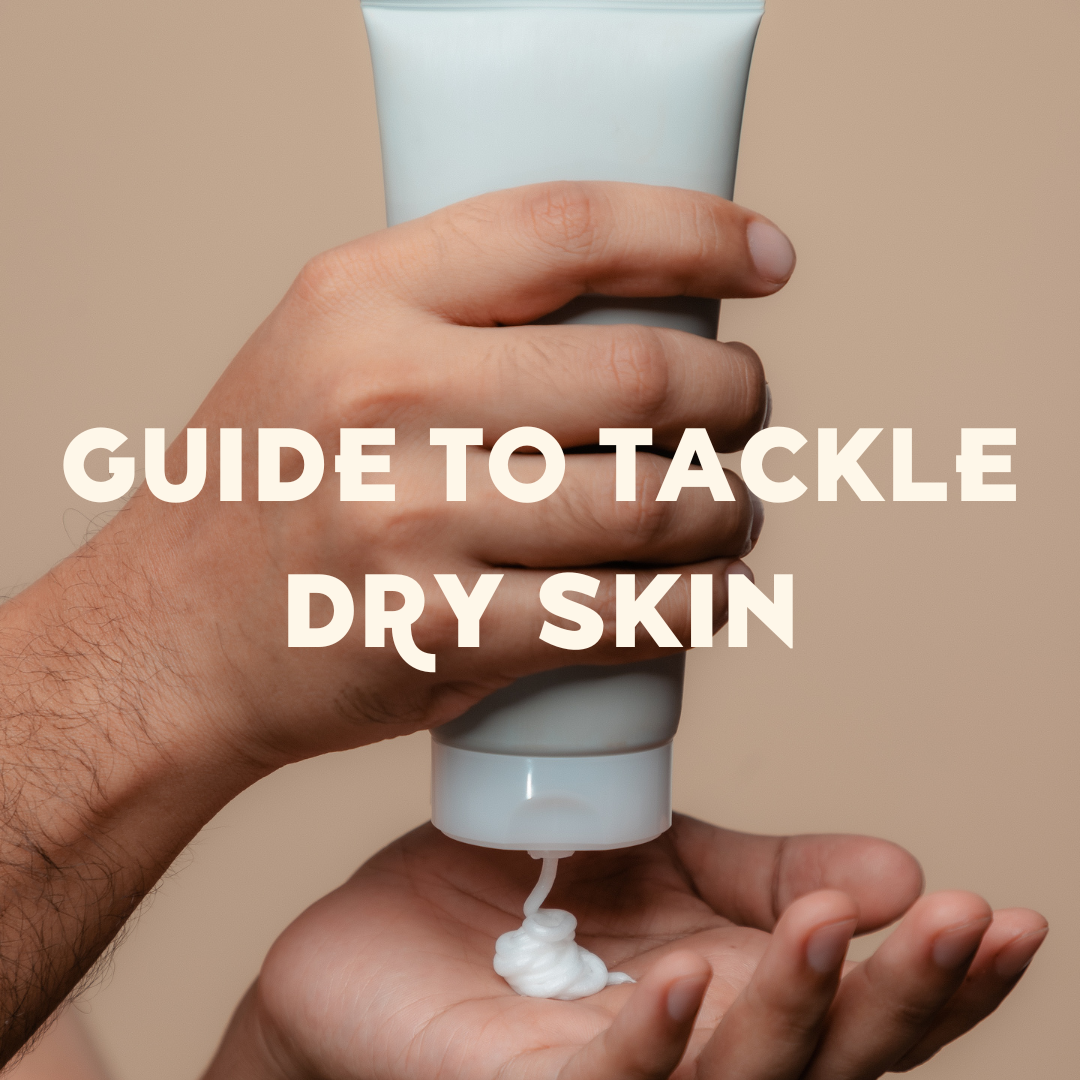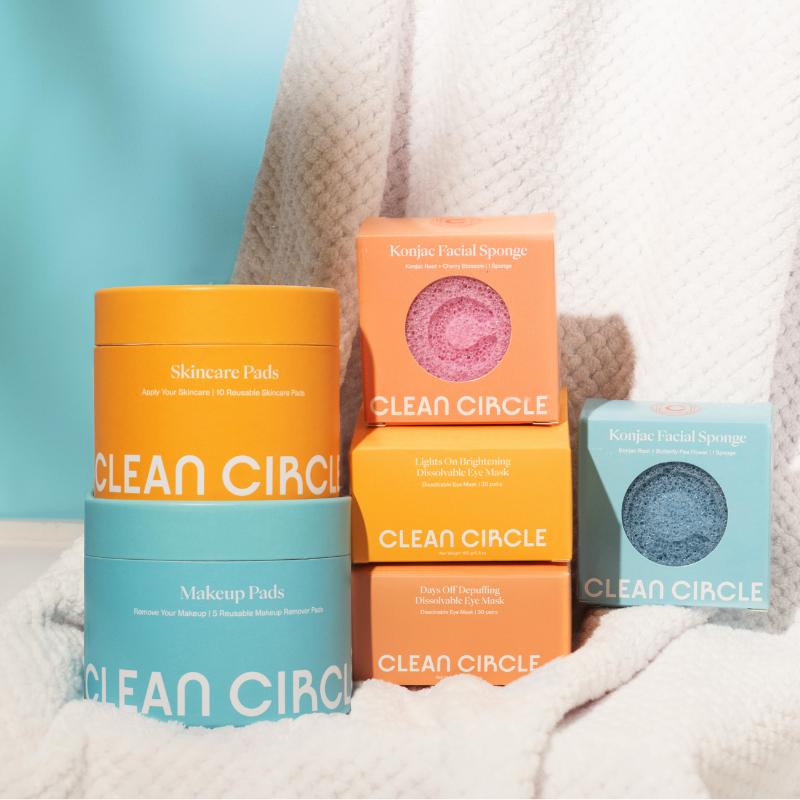
A Guide to Dry Skin Care in 2022
Share
It's the start of Fall which means pumpkins, long scarves and warm evenings indoors. Just as our wardrobe changes with the season, so does our skincare routine.
Have you ever had normal dewy skin all year, but when fall and winter rolls around, you get sudden dry skin? Dry skin conditions are typically more prevalent during extremely cold seasons. Extremely cold weather can very much trigger dry skin symptoms. However, dry skin can affect anyone at any time of year.
Who Has Dry Skin?
According to the 2007 National Health Interview Survey, as many as 81 million Americans have dry, itchy, or scaly skin during the winter months. But other environmental factors, such as heat, wind, low humidity, and high altitude, can cause the skin to lose moisture and appear and feel excessively dry. Therefore, almost anyone can experience this.
Dry skin is frequently temporary or seasonal — you may only get it in the winter — or it may require long-term treatment. The signs and symptoms of dry skin may differ depending on your age, health status, skin tone, living environment, and sun exposure.
Scaling, itching, and cracking are all symptoms of dry skin. It can happen for a variety of reasons. You may have naturally dry skin. But even if your skin is normally oily, you can occasionally get dry skin.
Dry skin on the face is more common than dry skin on legs or arms as it is the most exposed part of our body. However, any area of your body is susceptible to dry skin. In most cases, lifestyle changes and over-the-counter moisturizers may be all that is required to treat it. But If those treatments are ineffective, you should consult your doctor.
Signs of Dry Skin
- Tightness in the skin
- Rough skin
- Itchiness (pruritus)
- Mild to severe flaking skin
- Minor to significant peeling or scaling
- Cracks on the skin’s surface
- Fine lines or wrinkled skin appearance
- Color variation on skin from reddish on white skin to grayish on brown and black skin
- Deep cracks that might also bleed
What Causes Dry Skin on Face & Body?
Dry skin can be caused by a variety of factors, including environmental factors and certain medical conditions. Among the environmental causes of dry skin are:
- harsh deodorants or cleaning agents
- soaking in long, hot baths or showers
- living in cold, dry weather
- heating appliances that dry out the air, such as central heating or wood-burning stoves
Dry skin can also be caused by underlying health issues. Some of the typical ones are;
- Dehydration
- Eczema (Eczema dry skin symptoms are due to the condition itself)
- Diabetes
- Kidney Diseases
- HIV
- Certain Medications
- Genetics or Family History
Some medicines can affect the balance of fluids in the body and lead to dry skin. Some of these medications are;
Dry skin does not usually indicate an underlying medical condition. The majority of cases are treatable with either self-care or medical assistance. You might be engaging in daily practices that contribute to drier skin such as:
- Excessive skin cleansing.
- Your water is extremely hot.
- You're using a cleanser that disrupts your skin's natural pH.
- Exfoliating more than necessary.
- Applying moisturizer at the incorrect time.
- Not drinking enough and frequently enough water.
- Taking medications that can cause dry skin.
- You're dealing with skin or other health issues.
- It's due to genetics.
- Not wearing proper clothing like gloves during cold weather seasons.
How to Combat Dry Skin on Face and Body
The same skincare regimen all year-round might not be as effective when the humidity drops. Dry air can accentuate fine lines and wrinkles if you don't change your skincare routine.
Combating dry and flaky skin is not a one time treatment. It requires constant treatment to maintain and see progress in your skin. Keep in mind that treating dry skin on the body is different from how to treat dry skin on the face.
Some dermatologists recommend the following to help heal dry skin and prevent it from returning;
- Moisturize your skin at least twice per day and immediately after drying it. Moisturizers work by trapping existing moisture in your skin. To lock in this much-needed moisture, applying a moisturizer as soon as you get out of the shower is highly recommended.
- Use a cream or ointment rather than a lotion. Compared to lotions, ointments and creams are more effective and less irritating. Look for a cream or ointment with one or more hydrating ingredients such as:
- Jojoba oil
- Dimethicone
- Glycerin
- Lactic acid
- Lanolin
- Avoiding products and skincare ingredients that can dry out your skin will also help your skin retain its natural oils. If you have extremely dry skin, avoid using skin care products that contain any of the following ingredients:
- Alcohol (except for hand sanitizer)
- Alpha-hydroxy acid (AHA)
- Fragrance, including deodorant soaps
- Retinoids
At Home Self-Care Tips for Dry Skin
Moisturizers hydrate the skin slightly, but their primary function is to lock in moisture. There are several over-the-counter dry skin treatments out on the market. While finding the right products is an important part of the formula, increasing your skin's hydration and avoiding habits that dehydrate your skin—are the true foundation of a skincare regimen.
Self-care is essential in every treatment plan. In skincare, consistency is key. Make it a habit to constantly care for your skin and consider incorporating the following home remedies for dry skin.
- Moisturize several times per day.
- Install a humidifier in your home.
- Use a gentle cleanser to cleanse your skin
- Bath and shower for five minutes in warm (not hot) water.
- Wear gloves in cold weather.
- Protect your skin from the elements.
- Stay away from the sun and tanning beds.
- Dress comfortably in cotton and avoid too-fitted clothes as they may rub and worsen dry skin.
- Before using anti-itch creams or other skincare products, consult your dermatologist first.
- Apply lip balm constantly, especially if you have dry lips.
- Use only fragrance-free, gentle skin care products. Some skin care products, like deodorant soaps, contain fragrances that are too harsh for dry or sensitive skin.
- Choose irritant-free clothing and laundry detergent. Even clothes and laundry detergent can be irritating when our skin is dry.
- Stay warm without relying on a fireplace or other source of heat. Sitting in front of an open flame or another source of heat can cause your skin to dry out.
Products We Recommend
We recommend these products as you change over your skincare routine for the colder months. Here are our essentials to keep your skin moist and healthy.
Osea Essential Hydrating Oil: We love how easily this absorbs into your skin. A little goes a long way and gives you a natural glow. Use it before your moisturizer and SPF.
Grown Alchemist Soothing Hand Cream: Make sure to protect your hands as its often forgotten. Tip: Generously rub the lotion into your cuticles to keep it moisturized for healthy nails.

